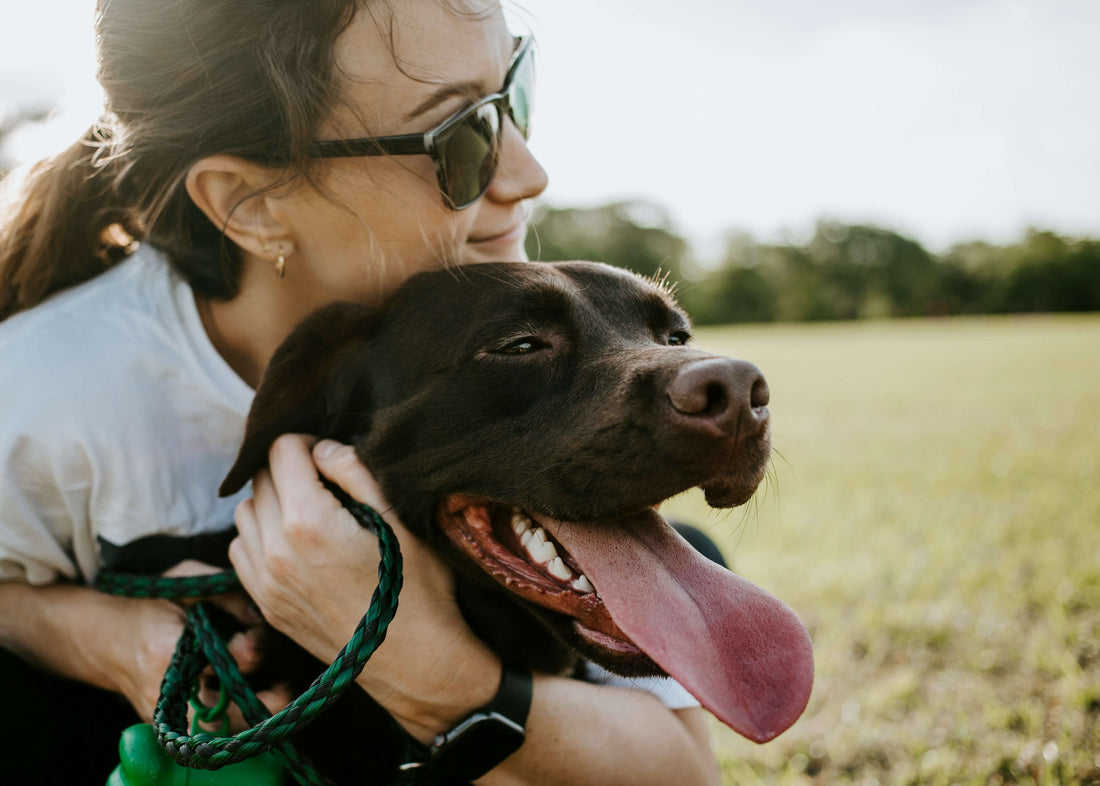What Human Food Can Dogs Eat?

Did you know that some human foods are perfectly safe for dogs?
Although complete dog food will provide your dog with everything they need, understanding which leftovers can safely be given to dogs can help to reduce food waste and provide nutritional benefits at the same time.
Keep reading to find out what human foods dogs can eat.
1. Bananas
Bananas are not only a healthy snack for humans but are also a nutritious treat for your canine companion. They are incredibly high in potassium, vitamins and fibre, supporting the overall wellbeing of your dog. The potassium is particularly beneficial for dogs, as it supports their muscle and bone health. When offering bananas to your dog, just remember to remove the peel as it can be hard for them to digest.
2. Apples
Apples are a tasty treat that many dogs love. Before serving apples to your dog, make sure to remove the seeds and core. Sliced apples can be used as a crunchy treat for your dog, and can even contribute to their dental health. Just remember to slowly introduce apples into their diet to avoid potential digestive issues.
3. Blueberries
Blueberries are packed with antioxidants, fibre and minerals, offering numerous health benefits to dogs. Their small size and soft texture make them a great option for rewards during training sessions. Being low in calories, they can even be used as treats for dogs who need to watch their weight. So, the next time you’re enjoying a handful of blueberries, consider sharing them with your furry friend.
4. Carrots
Raw and cooked carrots are perfectly safe for dogs. Chewing on raw carrots can even help maintain good dental health by reducing plaque and tartar build-up. Before giving your dog raw carrots, just remember to cut them into bite sized pieces to avoid choking hazards. You can even cut them into small cubes and incorporate them into your dog’s food to provide an extra bit of crunch.
5. Broccoli
Broccoli is safe for dogs to eat, both raw and cooked. However, raw broccoli can be a bit more difficult to digest. So, if you want to give your dog some broccoli, it is best to cook it to make it easier on their digestive system. We would also recommend avoiding any seasoning. Just plain broccoli is the best way to introduce some greens into your dog’s diet.
6. Green beans
Green beans can be used as a nutritious treat for dogs. Whether raw, steamed or canned, green beans can make a tasty addition to your canine companion’s diet. Full of vitamin C and vitamin F, introducing green beans into your dog’s food can be a simple way of providing them with a nutrient boost. All you need to do is wash and trim them before feeding them to your dog.
7. Sweet potatoes
Sweet potatoes offer the same benefits for dogs as they do for humans. Full of vitamins, minerals and antioxidants, sweet potatoes can contribute to the overall wellbeing of your dog. As a source of carbohydrates, they are even used by various brands of dog food. Their natural sweetness makes them taste absolutely delicious to your furry friend.
8. Cooked eggs
Eggs are a great source of protein, vitamins, minerals and fatty acids. However, it’s important they are fully cooked to avoid any risk of salmonella. Whether boiled or scrambled, eggs can make a nutritious and delicious treat for your canine companion. Just remember to avoid using any additives like salt, oil or butter.
9. Peanut butter
Peanut butter is a favourite among dogs. Packed with healthy fats, peanut butter can be a tasty addition to your dog’s diet. When choosing peanut butter for your pup, make sure to choose a variety that is low in sugar and free from artificial sweeteners. This can be harmful to your dog, so it’s important to monitor your dog’s peanut butter intake.
10. Rice
Rice is an ingredient that is often found in dog food. However, it can also be served with your dog’s regular food as an additional source of carbohydrates. Whether it’s brown or white rice, both varieties are gentle on the stomach and can be particularly beneficial for dogs with sensitive digestive systems or those recovering from an upset stomach.
Further advice on giving human foods to dogs
Many human foods are safe for dogs to eat. However, excessive consumption can lead to weight gain and digestive issues. Through portion control, you can ensure your dog only has small quantities of human foods and their dog food should be adjusted accordingly. While the occasional treat is allowed, your dog must continue to receive a balanced diet.
